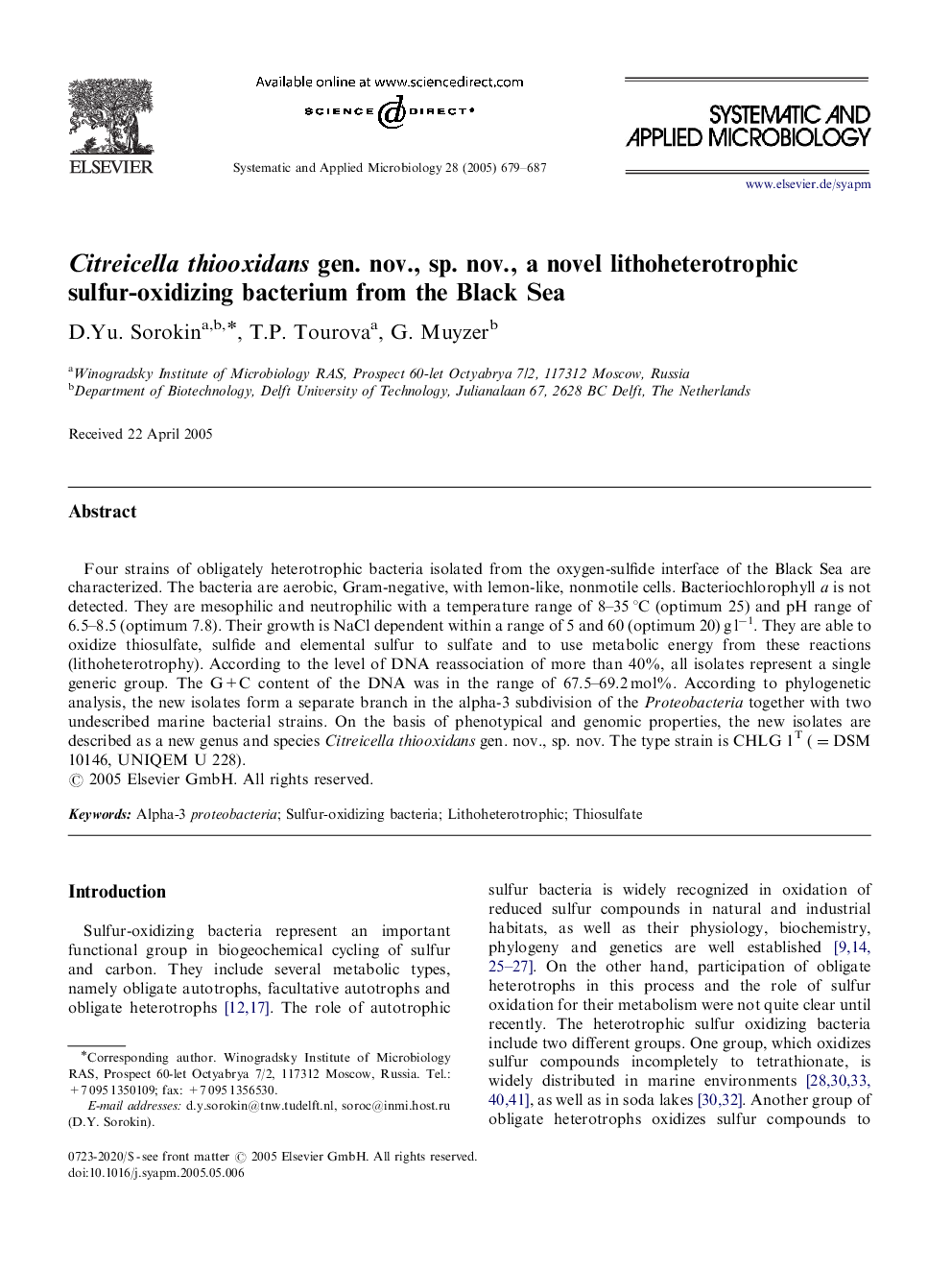| Article ID | Journal | Published Year | Pages | File Type |
|---|---|---|---|---|
| 10879419 | Systematic and Applied Microbiology | 2005 | 9 Pages |
Abstract
Four strains of obligately heterotrophic bacteria isolated from the oxygen-sulfide interface of the Black Sea are characterized. The bacteria are aerobic, Gram-negative, with lemon-like, nonmotile cells. Bacteriochlorophyll a is not detected. They are mesophilic and neutrophilic with a temperature range of 8-35 °C (optimum 25) and pH range of 6.5-8.5 (optimum 7.8). Their growth is NaCl dependent within a range of 5 and 60 (optimum 20) g lâ1. They are able to oxidize thiosulfate, sulfide and elemental sulfur to sulfate and to use metabolic energy from these reactions (lithoheterotrophy). According to the level of DNA reassociation of more than 40%, all isolates represent a single generic group. The G+C content of the DNA was in the range of 67.5-69.2 mol%. According to phylogenetic analysis, the new isolates form a separate branch in the alpha-3 subdivision of the Proteobacteria together with two undescribed marine bacterial strains. On the basis of phenotypical and genomic properties, the new isolates are described as a new genus and species Citreicella thiooxidans gen. nov., sp. nov. The type strain is CHLG 1T (=DSM 10146, UNIQEM U 228).
Keywords
Related Topics
Life Sciences
Agricultural and Biological Sciences
Ecology, Evolution, Behavior and Systematics
Authors
D.Yu. Sorokin, T.P. Tourova, G. Muyzer,
